Blog: Mission Possible, Tanzania, Aug 2016. Nervousness to excitement.

A team of Islamic Help volunteers has started its Mission Possible deployment in Tanzania, delivering aid - collected through their fundraising efforts - and projects directly to beneficiaries.These are the thoughts of a trio of volunteers on their first day of deployment.
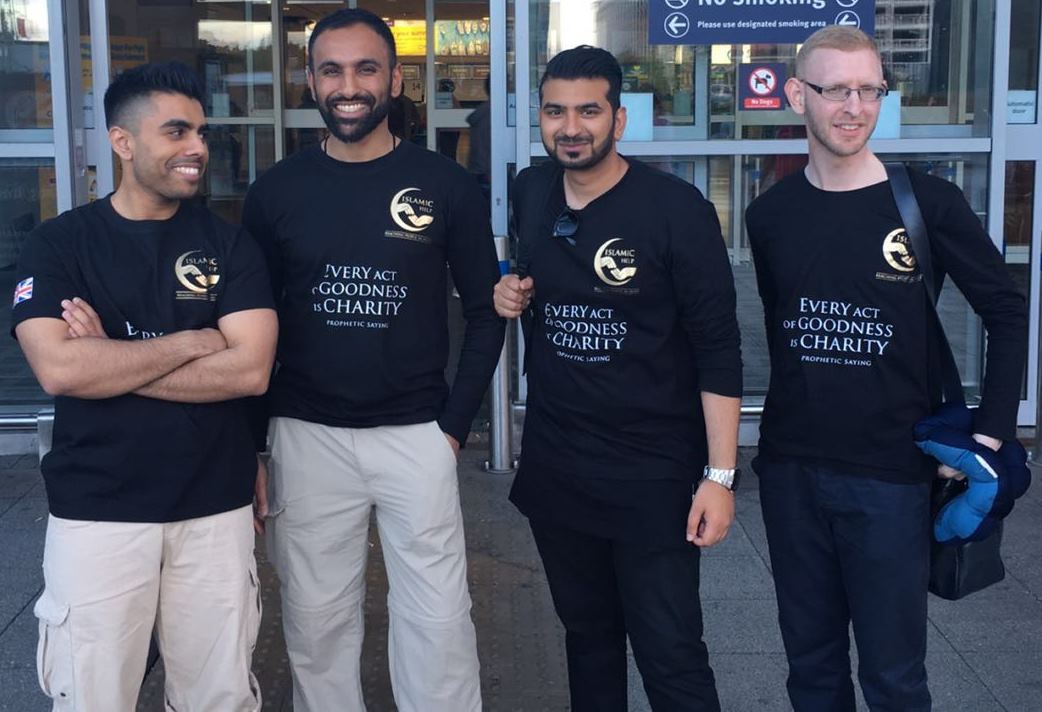

Nabil Ahmed: Today the Mission Possible team set off at 6am from Dar es Salaam on the 7-hour journey to Mzangarauni village in the Pangani region. The emotions ranged from excitement to nervousness to not really knowing what to expect once we got there.
The long journey came to an end once we crossed over on the ferry and reached the remote village where we were met and welcomed by the village leaders and local residents. Once all introductions were done, we split into two groups to speak with the villagers to get to know more about them and their community.
We started off by getting them to draw a rough map of the village showing where local amenities were located. The village has a primary school, a water well and some farmland. There’s no electricity and no medical facility.
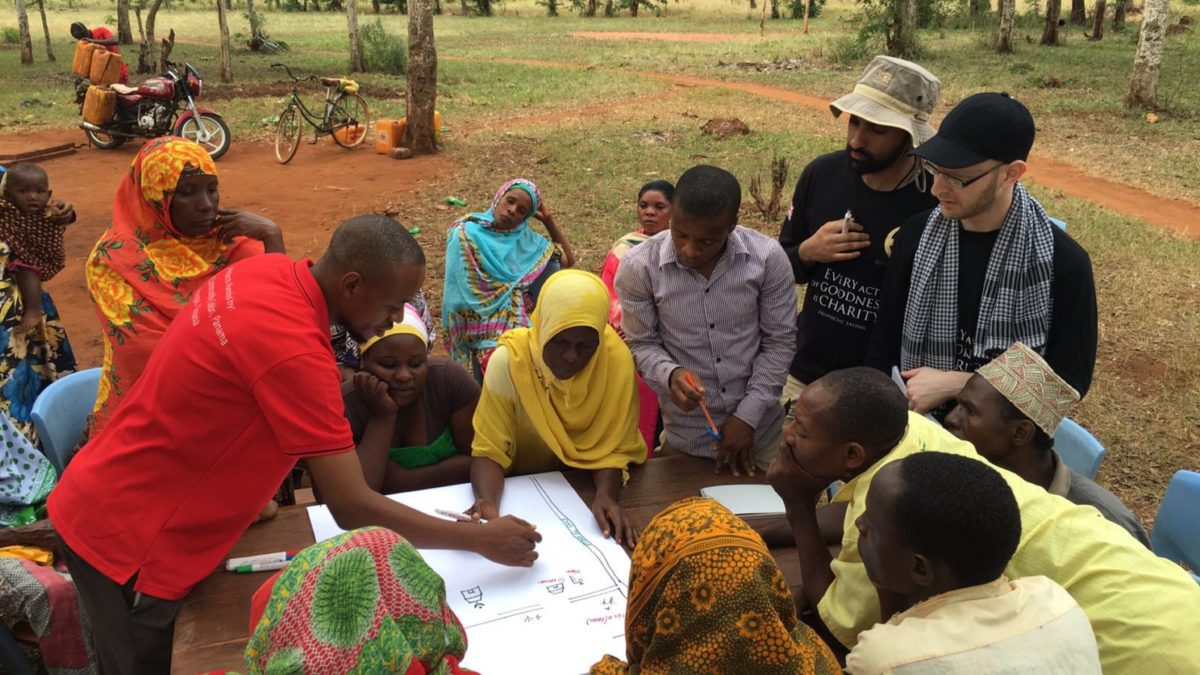
We made a seasonal calendar so that we could have an understanding of when it rains, when farming and harvesting takes place and when it is the summer season.
We then spoke about the daily routine of the men and women of the village and briefly about the demographics of the village as well as a bit about its history.
The villagers also told us about the roles of the village council, the village leader and village executive.
All in all, it proved a very interesting and informative session. It was inspiring to see how happy, content and satisfied the villagers were despite having next to nothing. There’s so much we can learn from them.
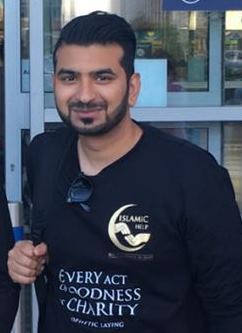
Akeel Iqbal: When we got to Pangani I was astounded that people actually lived in these conditions. The area is very remote and it took over 6 hours to reach Pangani, then an extra hour to reach the village we visited.
The roads are very bumpy and getting access to these areas was very difficult. This makes one think that it must be tough for the villagers to travel around. We went to Ubangaa village to have a look at the water source. We did a 1.5km water trek to visit the water source and brought back water for the village.
The water was not clean it was murky and it didn’t smell too good either. By the water source there were many insects which may have infected the water. After collecting the water I did not want to take it back to the village because it looked undrinkable to our standards in the UK.
However, for the locals this is the norm they collect the water and boil it for use. It makes me realise that for us in the UK water is easily accessible and we do not even think twice about how others in remote locations access water.
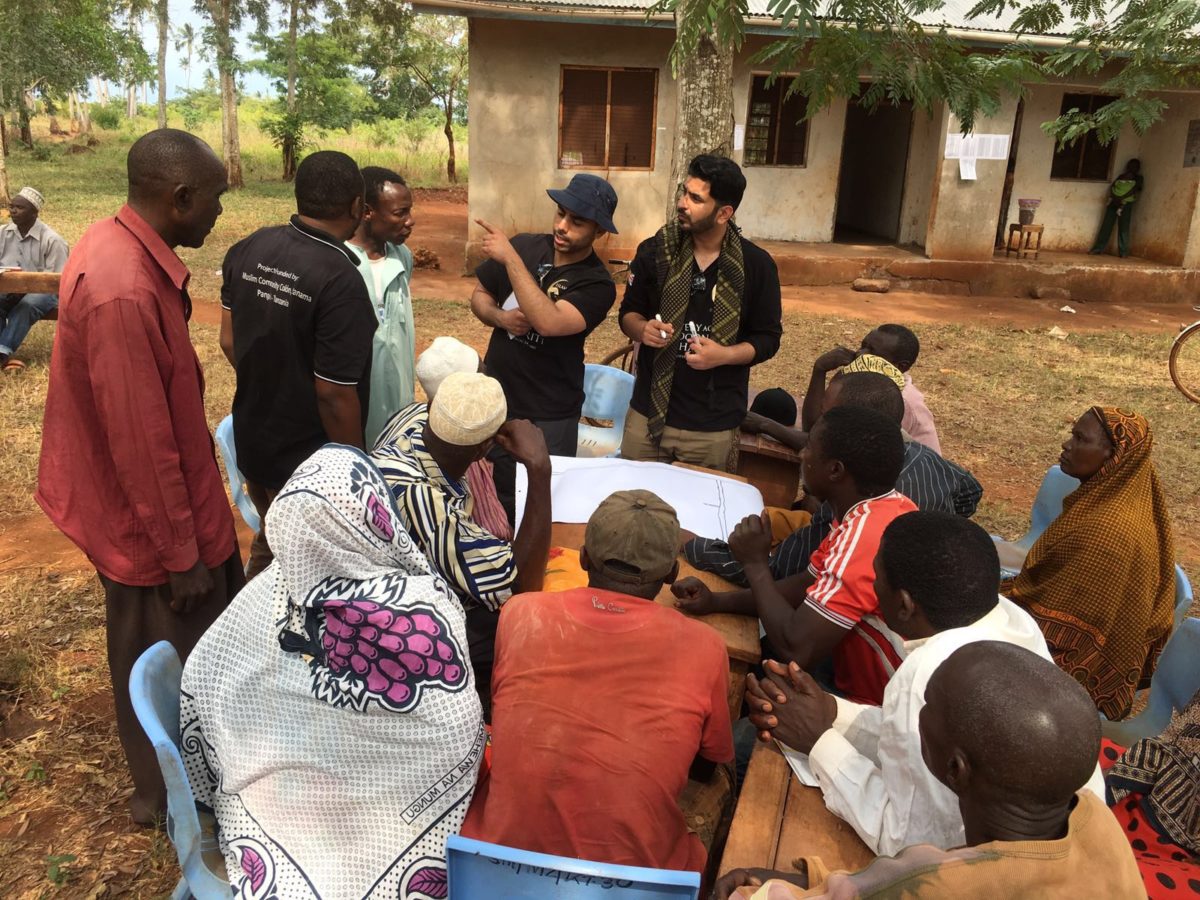
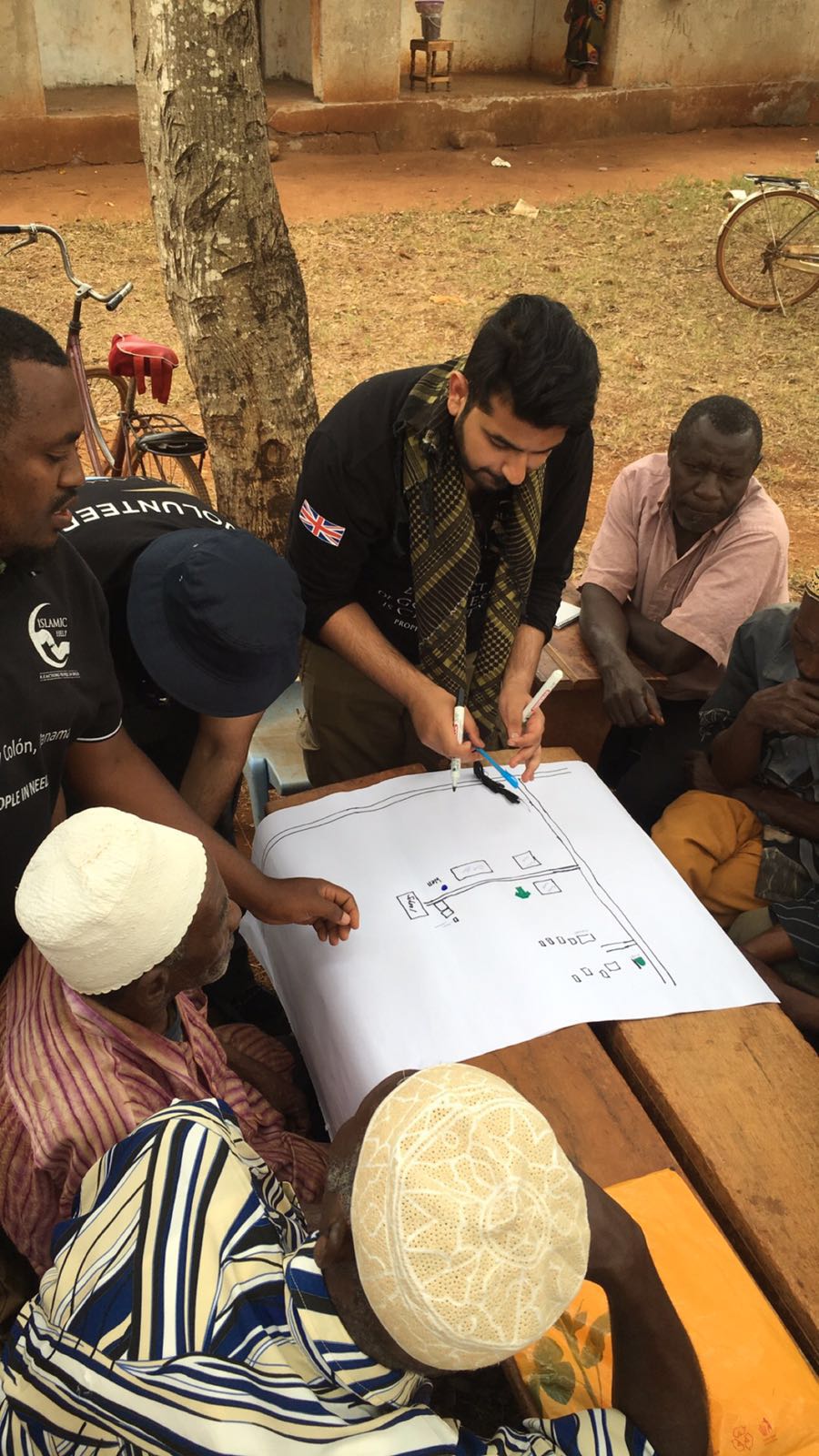
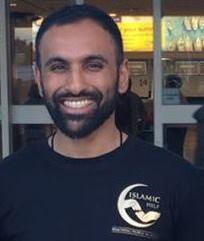
Navid Kaleem: Pangani, one of the 7 districts of Tanga region and featuring 33 villages, is one of the least developed parts of an undeveloped country.
We arrived at Mzambarauni village and received a warm welcome from the villagers. The chairman and about 30 villagers were in attendance. It was a way to introduce ourselves, get to know the villagers & for them to ask questions.
I found the CPA (Community Participation Assessment) very enjoyable and informative. I hope the villagers enjoyed my jokes more than my wife does. It’s only been one day, but seeing the villagers and their families made me miss my wife & children.
In the afternoon we visited Ubangaa village, receiving another warm welcome with drums and dancing. The villagers again made us feel very welcome. We carried out a water trek walking 1.5km to collect water to experience what the villagers go through on a daily basis.
It was a tough trek & in the end it was disappointing as the water source was dirty & in the end dried up for the day. Our assessment is this village would benefit immensely from a well.
Apply NOW!
Applications for October 2016 and August and October 2017 deployments are open!



